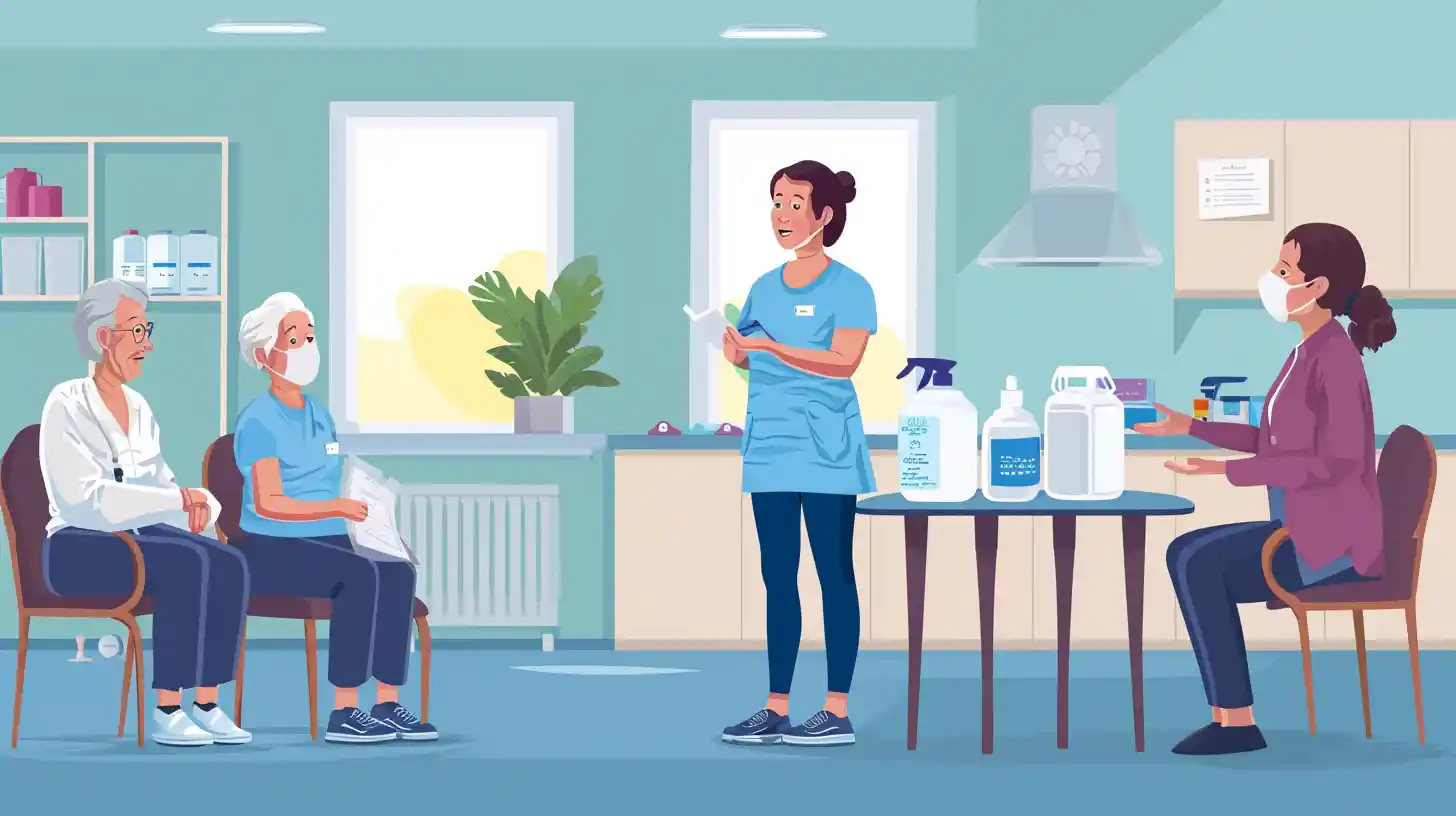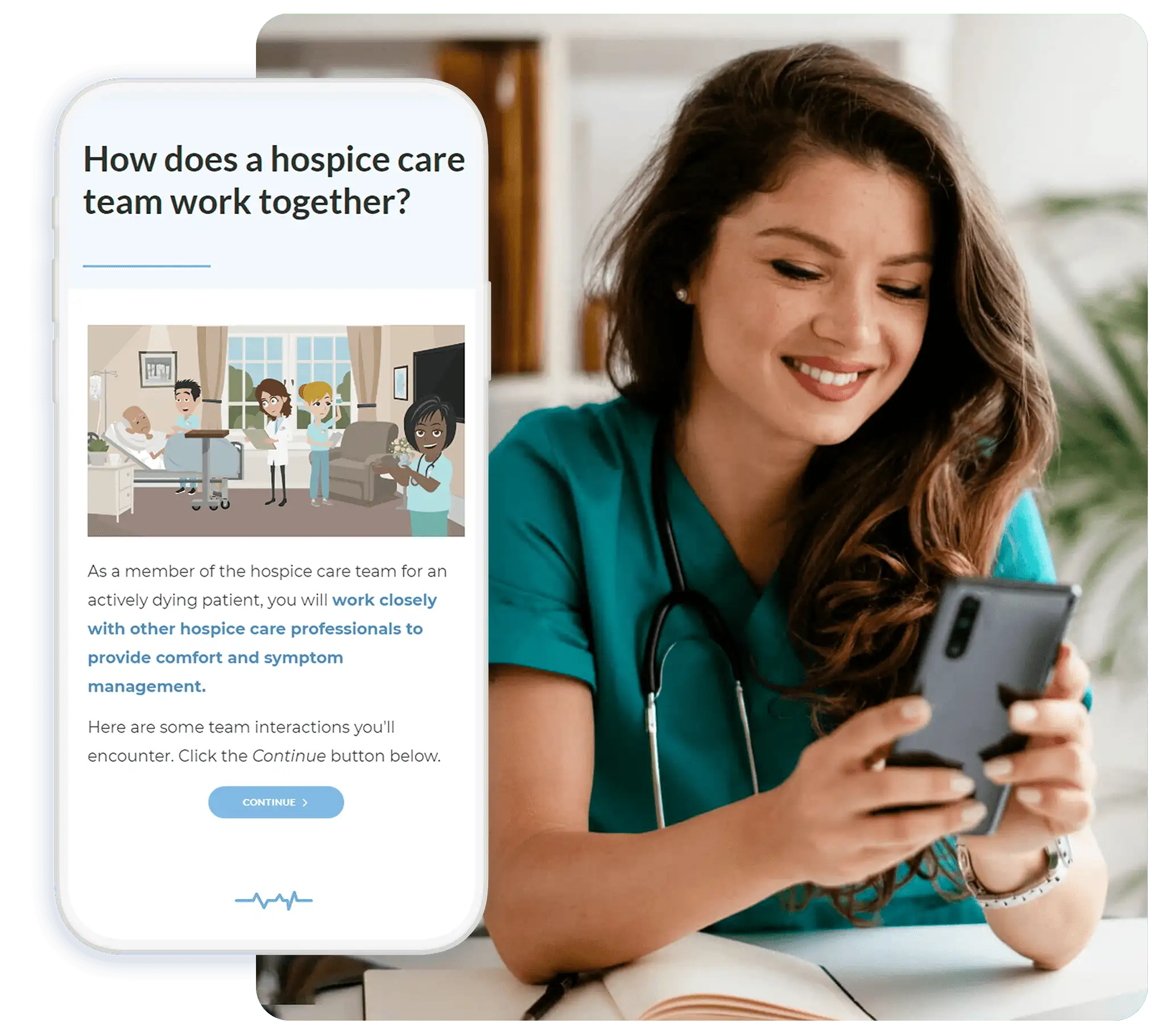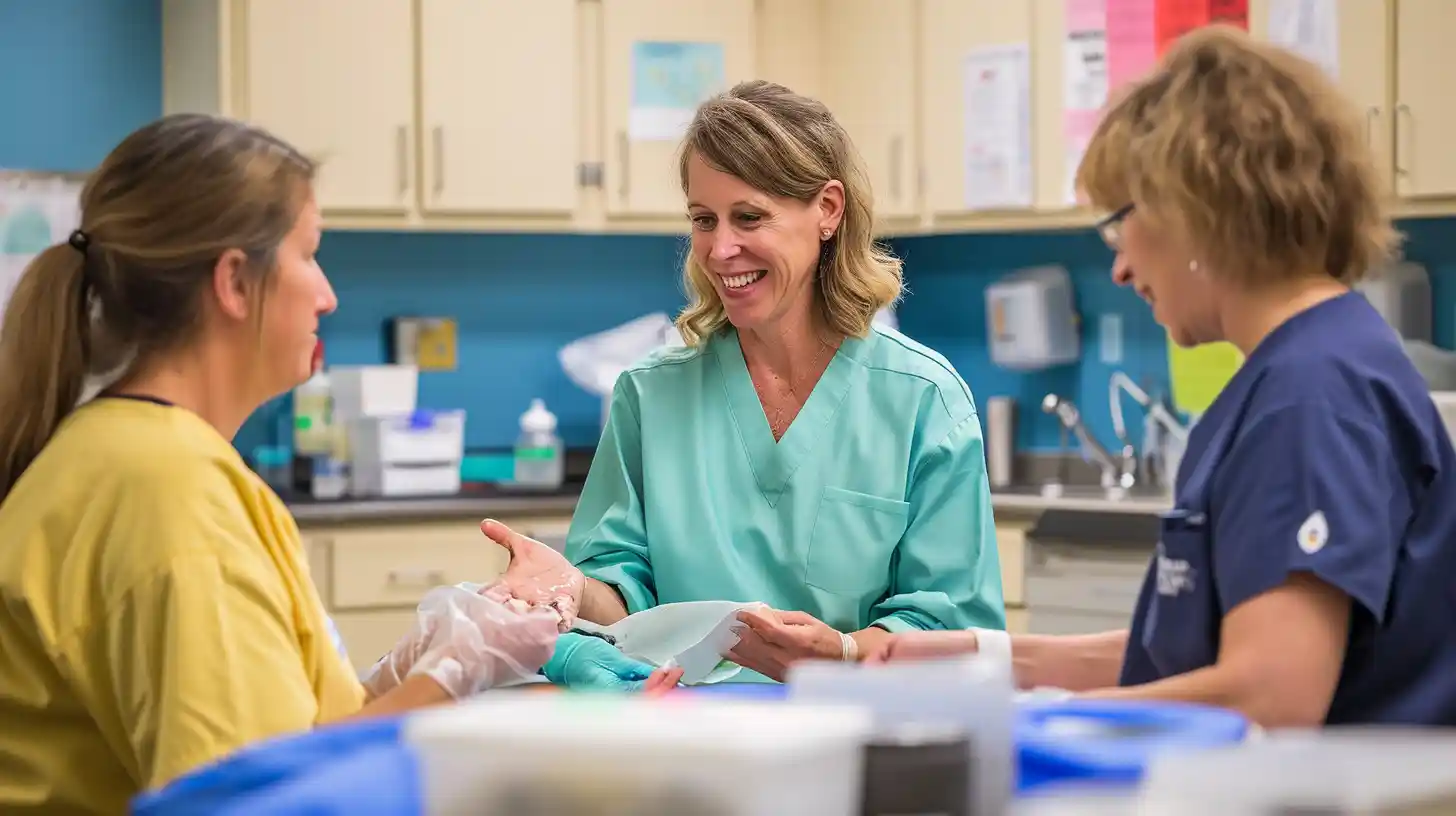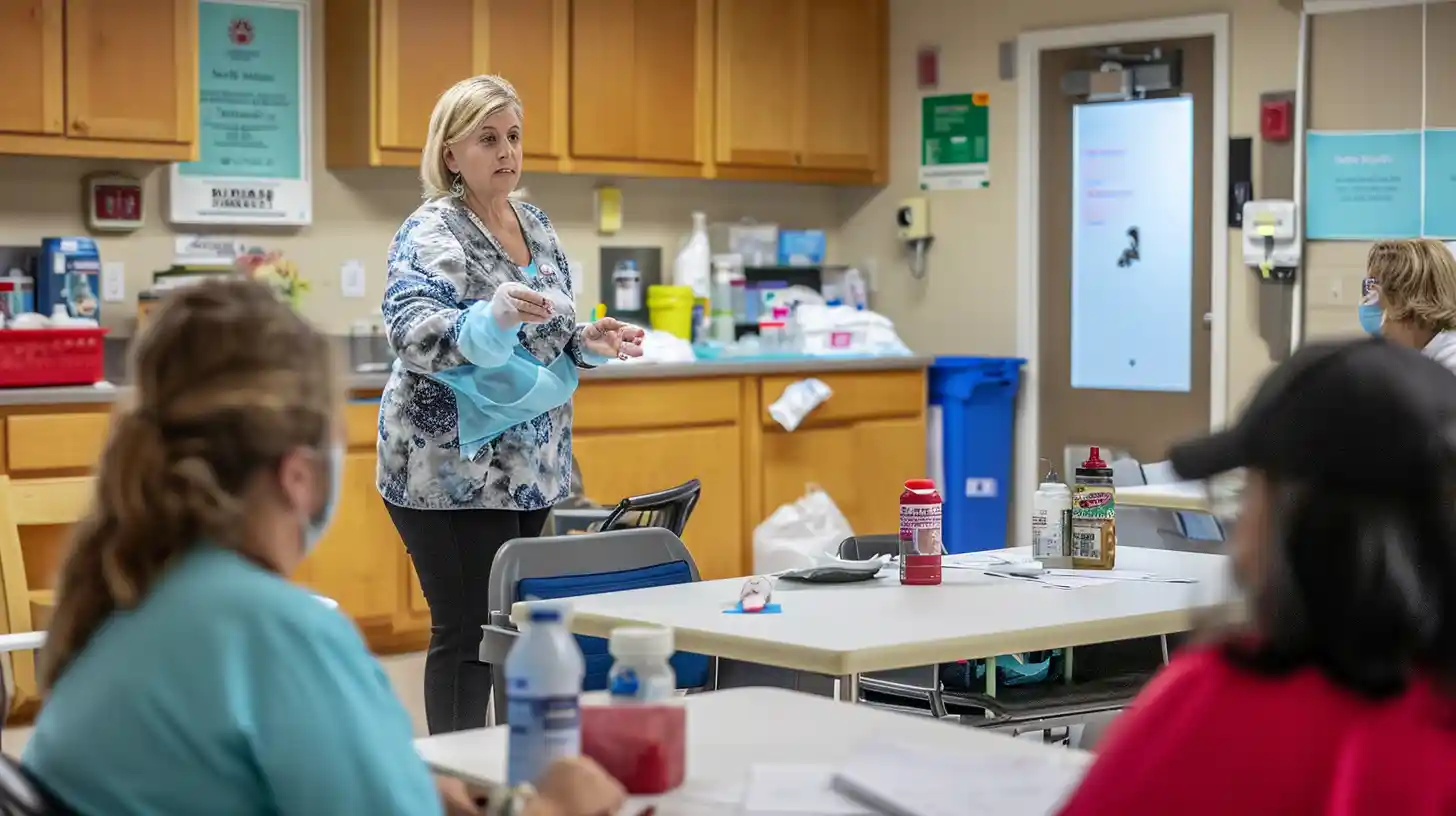Bloodborne Pathogens and Standard Precautions In-Service
This Bloodborne Pathogens and Standard Precautions in-service takes a deep dive into how to safely handle bloodborne pathogens and maintain standard safety practices in healthcare settings. You’ll learn all about different pathogens like HIV and Hepatitis B. The course also emphasizes the crucial role that personal protective equipment (PPE) and good hygiene habits play in preventing the spread of infection and contamination. By the end, you’ll have a solid understanding of how to protect yourself and others from bloodborne diseases in a home health or hospice environment
Skills You’ll Learn
- Identify Harmful Bloodborne Pathogens: Learn to recognize dangerous organisms in blood, enhancing your safety skills in healthcare.
- Master Standard Precautions: Become adept at implementing standard precautions to prevent the spread of bloodborne diseases.
- Effective Response to Exposure: Understand the protocols to follow after blood or body fluids exposure, ensuring a quick and safe response.
- Hepatitis B Vaccination Knowledge: Grasp the significance of Hepatitis B vaccination in the healthcare environment.

Bloodborne Pathogens and Standard Precautions In-Service Course Description
Understanding Bloodborne Pathogens
- What Are Bloodborne Pathogens? Dive into the world of harmful microorganisms, such as HIV and Hepatitis B, that are transmitted through human blood and other potentially infectious materials.
- Transmission and Occupational Safety: Explore how these pathogens are transmitted in healthcare settings and the role of the Occupational Safety and Health Administration (OSHA) in ensuring worker safety.

CONTINUA LEARNING
Simplify Your Agency's Compliance Training and Skill Building
A complete solution: more than 350 courses, 500+ CEUs, caregiver in-services, training plans, and more.
Standard and Universal Precautions
- Implementing Infection Control: Learn the crucial steps in infection control, including using PPE like gloves, masks, and face shields.
- Guidelines for Isolation Precautions: Understand CDC’s guidelines for isolation and transmission-based precautions, including droplet and contact precautions.
Practical Application and Compliance
- OSHA Standards and Compliance: Grasp the OSHA bloodborne pathogens standard and how it applies to your role in healthcare.
- Exposure Control and Emergency Response: Learn how to respond to and report occupational exposure to bloodborne pathogens effectively.

Protecting Yourself and Others
- Personal Protective Equipment Use: Master using PPE, respirators, and face shields to protect yourself and prevent transmission.
- Hand Hygiene and Contamination Prevention: Understand the importance of soap and water, hand hygiene, and other practices to prevent contamination and protect healthcare workers.
How to Get Started with Bloodborne Pathogens and Standard Precautions In-Service
This course is designed for home health aides, certified nursing assistants, and caregivers looking to enhance their knowledge and skills in handling bloodborne pathogens and standard precautions.
This course is part of a yearly subscription to Continua Learning. Continua Learning delivers over 300 hospice, home health, and home care training courses and in-services in a mobile solution for easy compliance and tracking it all from one place. Contact us to set up a demo for your agency today! Elevate your expertise. Enhance patient satisfaction.

Bloodborne Pathogens and Standard Precautions In-Service Continuing Education
This course offers 1 CEU for home health aides and certified nursing assistants. Continua Learning is an approved provider of CEUs from the following boards:
- Florida Board of Nursing
- Florida Board Of Occupational Therapy
- Florida Board Of Speech – Language Pathology And Audiology
- Florida Board Of Nursing – Certified Nursing Assistants
Course Reviewer
The course content is reviewed and approved by Margaret (Margie) Fincham, an experienced professional with over 50 years in nursing and business. Margie, a Barnes Hospital School of Nursing graduate of Washington University and California State University, holds BSN, MSN, and GCNS degrees and a B.A. in Art Administration.
Her extensive background includes:
- Roles in home health care and branch management.
- Development of caregiver courses in English and Spanish.
- Consulting in best practices for patients and clinicians.
She also holds certifications in hospice, home health, and wound care.
Frequently Asked Questions
Is this course compliant with the latest OSHA standards for bloodborne pathogens?
Yes, our course fully aligns with OSHA bloodborne pathogens standards, ensuring you receive the most current and compliant occupational exposure and safety protocols training.
How does the course address the risk of transmission in different body fluids?
The course comprehensively covers the risks associated with various human body fluids, focusing on situations where differentiation between fluids is challenging, and provides strategies to minimize the risk of transmission.
Does the course offer training on using personal protective equipment based on anticipated exposure?
The course provides extensive training on appropriately selecting and using personal protective equipment (PPE) based on the anticipated exposure to infectious diseases.
How does the course prepare home health and home care workers for occupational exposure to infectious diseases?
Our course equips home health and home care workers with knowledge and skills to protect themselves from occupational exposure, focusing on infectious agents, and implementing standard and additional precautions.
Can you elaborate on the guidelines for isolation precautions covered in this course?
The course details the CDC’s guidelines for isolation precautions, including transmission-based precautions like contact and droplet precautions, essential for effective disease control and prevention.
Does the course content include information about the prevention of hepatitis B and HIV?
Yes, the course covers preventive measures and precautions for transmitting hepatitis B and HIV, highlighting the importance of vaccination and safe practices in healthcare settings.

